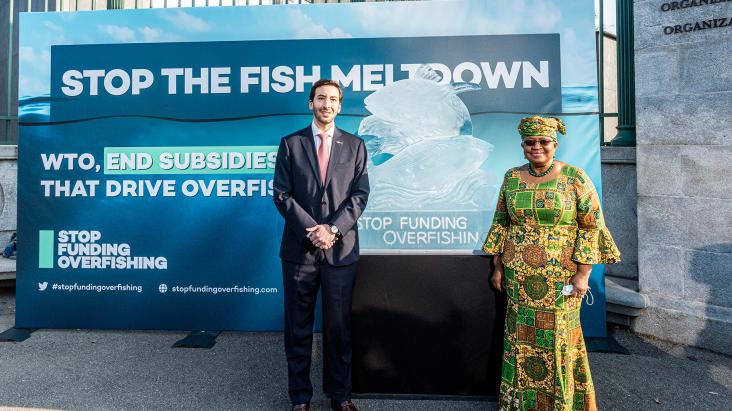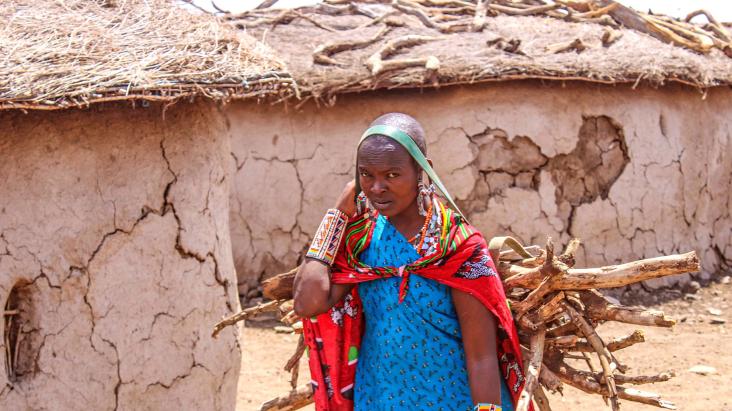Articles
Our experts weigh in on issues that are critical to sustainable development. Whether you’re looking for evidence-based policy analysis, a fresh perspective on a longstanding debate, or an easy-to-grasp explanation of a complex topic, you’ve come to the right place.
Insights
Sustainable development is a broad, complex field with many overlapping, interconnected issues. It can be hard to stay on top of where progress is being made, what new issues are emerging, and how current events are shifting us in new directions. IISD’s experts have the insight you need.

No New Fossil Fuel Projects: The logical first step in a transition to clean energy
Our experts propose a viable pathway to phase out fossil fuels, even when they are so embedded in people’s everyday lives, in the global economy, and in powerful political interests.

The G7 Should Lead the Transition Away from Fossil Fuels. Here’s how
At the upcoming G7 Leaders' Summit, there is a critical opportunity to consolidate and strengthen their progress on the energy transition, including on fossil fuel phase-out.

Biodiversity Is in Crisis—Here's one way to fix it
A growing movement of projects and partnerships is using locally driven and gender-responsive nature-based solutions to address the twin crises of climate change and biodiversity loss. Scaling up this work to match the urgency and reach of the crises will be a challenge—but it’s one we must embrace.
Deep Dives
The world’s greatest challenges don’t always have simple answers. Going beyond the surface is critical when it comes to solving global problems. Our experts know how important it is to look back at history and consider the big picture if we want to find solutions that work.

How Fossil Fuels Drive Inflation and Make Life Less Affordable for Canadians
New report takes closer look at how Canada’s dependence on fossil fuels impacts energy costs and prices of essentials such as transportation, home heating, and housing.

How Can We Work With Nature to Tackle Drought and Desertification?
Drought is one of the most devastating and pervasive challenges exacerbated by climate change. However, we can work to reduce its effects through nature-based solutions for land restoration and climate-smart agriculture.

Why Liquefied Natural Gas Expansion in Canada Is Not Worth the Risk
An analysis of the economic and environmental risks of liquified natural gas expansion in Canada.
Explainers
We can’t make progress on sustainable development if we don’t understand it. Research papers and textbooks don’t always speak in plain language, which makes it hard to learn about the nuances of environmental negotiations or get clarity on what counts as a fossil fuel subsidy. IISD experts are here to help.

Seven Key Issues to Watch at The Bonn Climate Conference
Compared to the United Nations Climate Change Conferences (COPs), the Bonn Climate Conference (SB 60) gets barely any time in the public spotlight. However, the discussions here play a critical role in shaping negotiations at COPs and provide a window into what lies ahead. Our experts weigh in on seven key issues.

What to Expect at Plastics INC-4
What to expect in Ottawa as plastic pollution treaty talks get underway, explained by the team leader of the global neutral reporting service Earth Negotiations Bulletin.

WTO Agriculture Negotiations at MC13: What does the lack of outcomes mean for least developed countries and other vulnerable economies?
IISD expert Facundo Calvo analyzes what came out of the WTO's agriculture negotiations at the 13th Ministerial Conference in Abu Dhabi and its implications for least developed countries and other vulnerable economies.
Policy Analysis
To put it simply, this is a space for our policy experts to wonk out—after all, some issues can only be tackled with technical expertise on niche subjects. IISD's team understands the importance of effective commentary and the ways in which it can lead to transformative policy change in the real world.

What’s Next After UNEA-6: Why “synergies” is more than a buzzword
In an era marked by escalating environmental challenges and geopolitical tension, the Sixth United Nations Environment Assembly (UNEA-6) called for more cooperation to tackle the triple planetary crisis.

Investor–State Dispute Settlement and Fossil Fuels: What role for a carveout?
Next week, at the 9th annual OECD Investment Treaty Conference, delegates will discuss a possible carveout of climate change measures from investor-state dispute settlements (ISDS). We assess the implications of this for states' climate policies and broader efforts to reform international investment governance.

World Trade Organization Agriculture Negotiations at MC13
Facundo Calvo stresses the essential role of binding commitments, rules, and disciplines to effectively regulate trade in food and agriculture, particularly to enhance food security in least-developed countries.
Success Stories
For 30 years, IISD has worked to fulfill a bold commitment to the world: advancing development that balances economic, social and environmental priorities. Here are just some of the ways we're making an impact.

Fueling Change: The journey to end fossil fuel subsidies in Canada
How Canada became the first country in the world to introduce a framework for ending government subsidies to domestic oil and gas companies.

A Global Deal to Tackle Harmful Fisheries Subsidies: A look behind the scenes
In June 2022, World Trade Organization members reached a historic deal tackling harmful fisheries subsidies. We unpack how a global campaign by environmental non-governmental organizations and technical policy and legal advice from trade experts in Geneva helped make a difference.

Envisioning Resilience: Bringing underrepresented women's voices into planning for climate change adaptation
Meaningful participation by women who are on the front lines of climate change is essential for gender-responsive, locally led adaptation. However, in many contexts, women remain underrepresented in decision making, from local to national levels.
